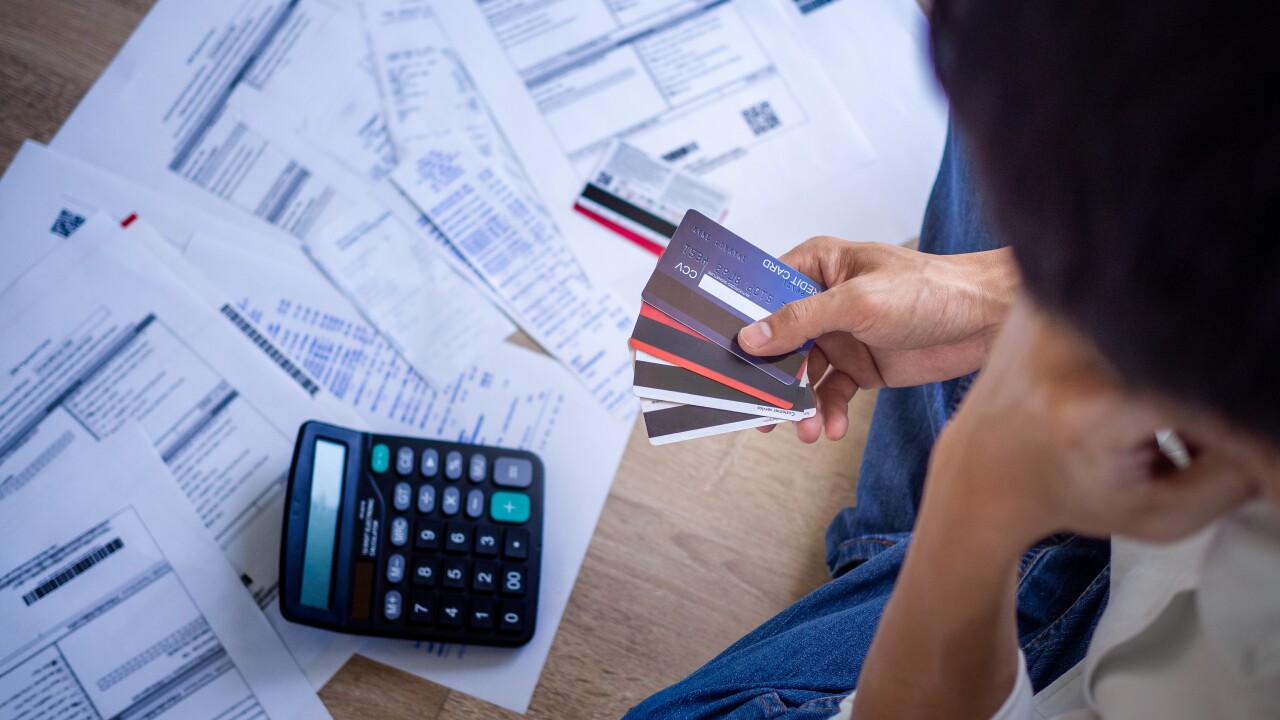-
The Consumer Financial Protection Bureau Wednesday said it will take a harder look into mobile financial services to see the potential for consumer harm and determine the impact on the underbanked.
June 11 -
The Consumer Financial Protection Bureau is taking longer than expected to issue rules on financial products like prepaid cards, payday loans, and student loans but Director Richard Cordray sought to reassure lawmakers Tuesday the agency would address many of those areas within the year.
June 10 -
Consumer Financial Protection Bureau Director Richard Cordray sat silently at a public hearing as a room full of the industry's customers and employees argued that Americans should be allowed to make their own borrowing choices.
May 16
WASHINGTON A Consumer Financial Protection Bureau hearing meant to get feedback on mobile banking technology took a sharp turn Thursday when a majority of the audience offered complaints about payday lenders instead.
The CFPB hosted a field hearing in New Orleans as part of its effort to seek input on how mobile banking technology can help the underbanked as well as potential risks it poses to consumers.
But when the hearing opened up for comments from the audience, nearly all those who spoke urged the CFPB to crack down on payday lenders because recent actions by state lawmakers did not suffice.
"Not only in Louisiana, but we have people all over this country all over this country who are affected by this payday loan industry," said one audience member who was among those to speak against payday lending during the hearing. "So we need the CFPB. We need the federal government to come in and do the work that the state failed to do."
At issue is a payday reform bill that failed to pass in Louisiana earlier this year. The current state law also does not set certain interest rate caps to the degree that many consumer groups were pushing for.
Most of the audience members who spoke at the hearing said they were disappointed in the actions by the state.
"I'm here today to take this to the federal level. If the state leaders will not listen then the responsibility comes to you" the CFPB a second audience member said. "You know the problems better than anyone and so I join with others in calling on making more effective rules."
This is not the first time that a CFPB hearing on a particular financial product has been diverted to discuss payday loans. The agency is under increasing pressure from consumers and lawmakers to issue new rules since it is the only agency with the power to rein in traditional and online payday lenders nationwide.
But the CFPB has taken a careful approach, delaying the release of new regulations while issuing several studies examining the topic.
"It is taking us somewhat longer as a result to address this [payday issue], but I think it's well worth a little additional time in order to make sure that what we do won't be made a mockery of by people circumventing it through just transforming their product slightly," said CFPB Director Richard Cordray before the Senate Banking Committee on Tuesday.
During his appearance at the hearing on Thursday, Cordray briefly mentioned payday lending, focusing on how underserved consumers tend to use the product over traditional banking. He likened it to mobile banking products that can help expand access to financial services.
"Mobile financial services can help provide access to a myriad of products and services that these consumers may not be able to access due to location or other barriers such as cost," Cordray said in prepared remarks. "The cost issue is important because mobile has the potential to be significantly cheaper than traditional banking."
The panelists who ranged from industry leaders like the chief executive of the prepaid card issuer Green Dot to consumer advocates including a Baptist pastor were largely in favor of better promotion and understanding of mobile banking.
However, several panelists said one of the bigger concerns is getting consumers comfortable with using mobile banking, even though studies show that a majority of consumers with cell phones use smartphones.
Particularly for undocumented workers many "don't bank because they don't trust the banks so if they're not banking then mobile banking is irrelevant. And they all have smartphones," said Carolina Hernandez, executive director of Puentes New Orleans, an advocacy group for the Latino community. There needs to be "policy that is designed to address certain products in that they take into account cultural relevance. And that is hard to measure."
Steve Streit, the Green Dot CEO, agreed.
"Mobile banking is a great opportunity to serve the customer but at the end of the day, it's still a bank and you still need to get the customers comfortable," he said. "That is still going to be the hardest part, whether or not the access is a mobile device, or a desktop or the drive-through teller."





